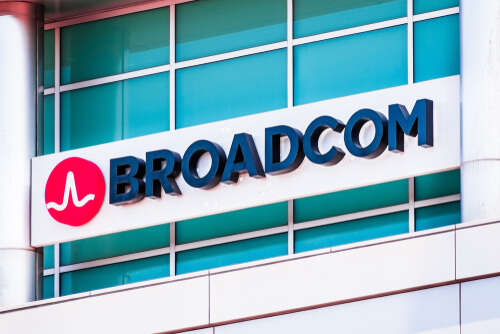
US chipmaker Broadcom is putting out a fresh call to the EU in the hopes of saving its $61bn takeover of virtualisation specialist VMware. The deal has faced scrutiny from regulators in the US, UK and the EU over fears it could prove anti-competitive.

Broadcom CEO Hock Tan is giving evidence at a closed hearing today with senior European Commission officials where it is expected he will argue the presence of Amazon, Microsoft and Google in the cloud sector is proof of strong competition.
Regulators have raised concerns the merger will restrict competition in the market for hardware components which interoperate with VMware software, warning it could restrict competition in the global market for the supply of fibre channel host bus adapters and storage adapters.
The warning came after an investigation into the deal by the EU opened last December. A final decision on the deal is expected by 7 June and if approved could include conditions around the sale of certain products. Similar concerns have been raised by other regulators including the UK’s Competition Markets Authority (CMA) and the US Federal Trade Commission.
The cash-and-stock deal was first announced in May last year. At $61bn it was the second-largest of the year after the equally highly scrutinised deal between Microsoft and Activision Blizzard, which was blocked last month.
Analysts said at the time it was Broadcom’s biggest and boldest bid to date to diversify its business model and move into enterprise software.
Despite the setback, and an ongoing investigation by the CMA that isn’t expected to close until September, Broadcom says it still expects the transaction to close in this fiscal year.
Tan is joined by a team of executives and lawyers for the meeting with deputy director general for mergers in the European Commission, Guillaume Loriot. There will also be national agencies and lawyers represented and VMware President, Sumit Dhawan, will join them remotely.
Broadcom-VMware: restrictions and remedies
The outcome of this meeting will likely influence the degree of restrictions and caveats placed on any deal being approved. Broadcom is expected to offer a series of remedies to the commission over the next week that address concerns raised so far during the investigation.
The primary concern raised is that Broadcom could degrade interoperability between VMware’s software and competitors’ hardware in favour of Broadcom chips. This would be significant due to the wide reach of VMware software which is largely hardware agnostic.
The EU says, if left unchallenged, it could lead to higher prices, less innovation and lower quality products that will impact businesses and consumers.
Under the new CMA investigation timetable hearings will take place next month and any remedies to concerns will have to be delivered and discussed by the end of August with a final report before September.
Broadcom hopes to close by the end of October, which gives the company just two months to remedy any further issues raised by the CMA in order to get approval. The CMA’s biggest concerns so far largely mirror the EU, centred on the risk Broadcom will prioritise its hardware over competitors. This will likely make finding remedies easier if the two authorities have shared concerns.
An article in the US-based National Law Review by advocate Timothy Z LaComb of law firm MoginRubin suggests the deal is unlikely to close. Published in March it cited the multiple reviews from the FTC, EC and CMA all raising concerns over market impact.
“Broadcom is a serial antitrust offender, having paid multiple fines and been subject to several antitrust investigations for abuse of market power in both Europe and the US,” wrote LaComb. “Based on these circumstances, it is not implausible for antitrust enforcers to conclude the effect of the merger ‘may be substantially to lessen competition, or tend to create a monopoly’,” under US legislation.






